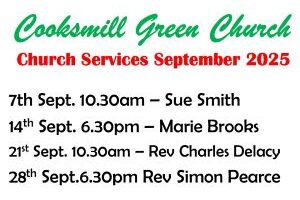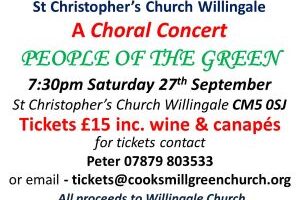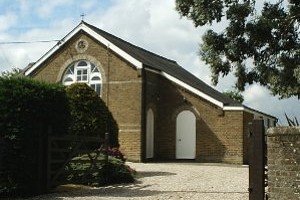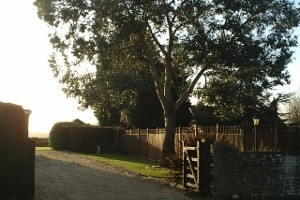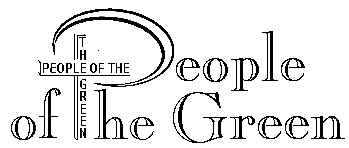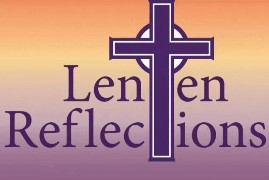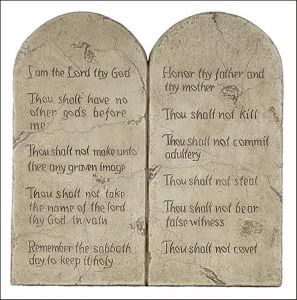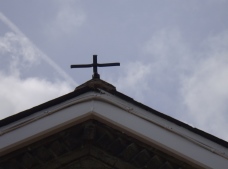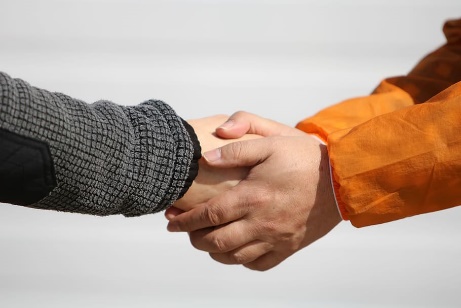Thought for the Month March 2024
Giving Up?
How is the Lenten observance journey going? Finding out anything new about yourself or about your relationship with God in the world? Have you ‘given up’ something that you really like, as befits the church’s traditional endurance period of denial, something that a lot of people, (even non-Christians, I’ve found), always do at this time of year because, well, it’s Lent isn’t it, and of course that’s what you’re meant to do? The reason I ask, is that at times, I do wonder if our Lenten observance is at risk of becoming just another annual irreligious contest, no more than a demonstration of one’s own fortitude and resolve in the facing down of your guilty cravings, a bit like a pious version of Dry January? If at the end of it all, you find yourself full of self-reward and haughty achievement for not falling off the wagon for six weeks, I would of course firstly congratulate you, and then perhaps suggest that you ask yourself “why did I do it”, swiftly followed by the more thought provoking “what did it achieve for me?
I have come to realise that this sort of reflection is a very important part of the observance process, in order to provide meaningful value through insight, of what it is that you have actually achieved, not just for the preceding six weeks but for all the weeks that follow and beyond. Perhaps, if we can be honest, some will not bother to enter into it, perhaps the annual Lent ritual has lost any sense of purpose, you’ve run out of observance topics and it seems that a kind of Lenten fatigue has set in, it’s now no more than the run up to Easter weekend?
I was taught, like many others, that the fasting observance of Lent, represented the endurance and sacrifice of Jesus during His forty days in the desert, qualities which He would again demonstrate on His journey to the cross, and that somehow my chosen denial was being done to emulate both His self-discipline and sacrifice when confronted with temptation. I struggled with this on two fronts, firstly how could my banal denial of sweets, chocolate etc, remotely be on a par with Jesus’ sacrificial endurance, and secondly, when Lent was over, I easily went back to eating them again, and therefore was not really sure what it was that I had achieved, there was something missing in the purpose of my achievement (or failure) that began to gnaw at me year on year, and left me wondering if it was just me feeling like this?
So, it became something I just did, like a lot of others I’m sure, because that is what it seemed Lent was for. It wasn’t until later in life that I realised, not only that I was meant to reflect on how it made me feel, on what it had changed about me to make me more Christlike in the world, but also that the responsibility for asking those searching questions lay completely with me and me alone, because the people around you might be prepared to ask whether you managed to sustain your chosen observance, but they will never ask you what you learnt from it and surely that is where we find the value of it all.
There is also the possibility that we never actually ask those questions of ourselves
either, due to the transition of Lent into Easter, where as we finish the endurance of the Lenten observance we are immediately thrust into the emotional lows and highs of Holy Week, the painful darkness of Good Friday, the sad stillness of Saturday, before the joyful happiness of Easter Sunday, and it is here that Lent is somehow quickly put away for yet another year, as all our sermons will naturally speak only of the triumph of the resurrection and the new life that it brings, we bask in its glory before quickly moving on, where we either forget to look back, or choose not to.
The eventual outcome for me was to change my mindset from “what am I going to do for Lent?” to “what is Lent going to do for me?” No longer would I restrict myself to an endurance of denial in order to tick the compliance box, but instead do something more meaningful, still challenging and with a required need for self-discipline, but also considered, and spiritually beneficial for both me and for my relationship with God, which I now understand to be the fundamental purpose of the Lenten observance. There are also the pillars of prayer and almsgiving to use as preparation for the road to the cross and its promised salvation, so why be restricted to “giving something up”?
We still have a fair bit of this year’s Lenten journey to go and so I truly hope that however you have decided to participate, in whatever observance method you have chosen, that you are finding it worthwhile and fulfilling in its purpose, if not, or you are abstaining due to Lenten fatigue, then there is still time to take a different approach, in whatever way motivates you and one that brings you to an Easter reflection with some benefit, no matter how small, designed to bring you a little closer to Christ and the events of His Passion, a sacrifice borne of eternal love for us all. Amen
Danny
Loving God,
During the sacred season of Lent, bring me closer to you.
Prepare a place in my home and heart for silence and solitude,
so that I may re-discover the grace of a prayer-full life.
Help me to fast from those things that threaten the well-being of
body and soul and remind me of the grace of simplicity.
Enlarge my heart so that I give to those in need and, in so doing,
re-discover the grace of gratitude and generosity.
May this season be a grace-filled time to rekindle
my love for and faith in you.
Amen.
